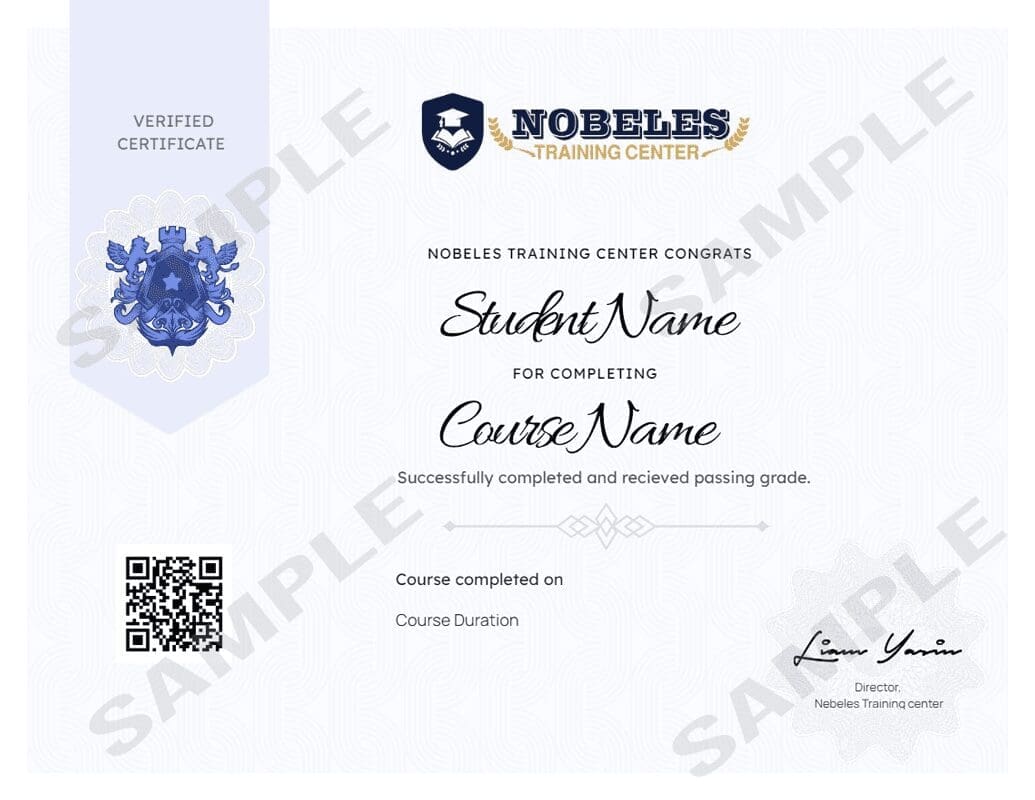Description
Curriculum
Instructor
Supply Chain Management improves the coordination and relationship between Suppliers, Producers, and Customers. It must be kept at a high level of organization to be successful in today’s global economy. Goods and services are now pieced together from all over the world, and this process can be hectic and complicated if not managed correctly.
With Supply Chain Management your company and employees will be on target to lower costs, improving efficiency, and increase customer satisfaction. This course will provide your employees with the understanding of how Supply Chain Management can improve and help almost any type of business.
Curriculum
- 11 Sections
- 0 Lessons
- 10 Hours
Expand all sectionsCollapse all sections
- Why Supply Chain Management?Supply chain management is crucial for optimizing efficiency, reducing costs, and ensuring timely delivery of products. It enhances coordination across suppliers, manufacturers, and distributors, ultimately improving customer satisfaction and competitive advantage.0
- Key Terms (I)Key terms in supply chain management include procurement, logistics, inventory management, and demand forecasting. Understanding these terms helps streamline operations, optimize resource use, and improve overall supply chain efficiency and effectiveness.0
- Key Terms (II)Key terms in supply chain management also include supply chain visibility, lead time, vendor management, and just-in-time (JIT). Mastery of these concepts enhances coordination, reduces delays, and ensures smoother operations across the supply chain.0
- Three Levels of Supply Chain ManagementThe three levels of supply chain management are: 1. Strategic: Focuses on long-term planning, setting goals, and establishing relationships with key partners. 2. Tactical: Involves middle-term planning, including resource allocation, inventory control, and process optimization. 3. Operational: Deals with day-to-day activities, such as order fulfillment, logistics management, and production scheduling.0
- Five Stages of Supply Chain ManagementThe five stages of supply chain management are: 1. Planning: Developing strategies and forecasts to meet demand and allocate resources. 2. Sourcing: Identifying and managing suppliers, negotiating contracts, and procuring materials. 3. Manufacturing: Producing goods efficiently while maintaining quality and adhering to schedules. 4. Delivery: Managing logistics, warehousing, and distribution to ensure timely and accurate product delivery. 5. Returns: Handling returns, recycling, or disposal of products and managing reverse logistics.0
- The Flows of Supply Chain ManagementThe flows in supply chain management include: 1. Product Flow: Movement of goods from suppliers to manufacturers, and finally to customers. 2. Information Flow: Sharing data between all parties, including demand forecasts, inventory levels, and order status. 3. Financial Flow: Transfer of payments and financial transactions between suppliers, manufacturers, and customers. 4. Reverse Flow: Returns of goods, recycling, and disposal, managing reverse logistics efficiently.0
- Inventory ManagementInventory management involves tracking stock levels, ordering supplies, and optimizing storage to balance demand and supply. Effective inventory management reduces costs, prevents stockouts, and ensures timely availability of products for customers.0
- Supply Chain GroupsSupply chain groups include procurement, manufacturing, logistics, distribution, and customer service. Each group manages distinct aspects of the supply chain, ensuring efficient sourcing, production, delivery, and customer satisfaction through coordinated efforts.0
- Tracking and MonitoringTracking and monitoring in supply chain management involve real-time data collection on inventory, shipments, and performance metrics. This ensures visibility, improves decision-making, and enhances efficiency by promptly addressing issues and optimizing processes.0
- Supply Chain Event ManagementSupply chain event management involves identifying, assessing, and responding to disruptions or anomalies in the supply chain. Effective management minimizes impact, ensures continuity, and enhances resilience by implementing proactive strategies and corrective actions.0
- Post-TestPost-Test0
Nobles Center

5 Students146 Courses
Review
$299.00
295 students
0 lesson
Language: English
0 quiz
Assessments: Yes
Skill level All levels
Nobles Certificate
At the end of the course, you can download a copy of your certified certificate.
Nobeles Academy
Mobile Application
Download the Nobeles center mobile app from the app app store, click the button below
Courses you might be interested in
Working in a home office requires a unique set of skills. Teleworkers or virtual employees have additional challenges created by not being in a centralized office. Communication issues alone make...
-
1 Lesson
$175.00
Having the technical skills and knowledge to successfully execute your job duties is only one part of being the best you can be in the workplace. In addition to these...
-
0 Lessons
$225.00
The cloud has become a vital component for business as technology becomes embedded in modern life. Every leader needs to understand the cloud and how it operates, as well as...
-
0 Lessons
$195.00
Phone skills are a highly valuable tool to have in an employee’s skill-set, and Call Center Training will help provide those skills. This course will help = improve phone skills...
-
0 Lessons
$275.00






